How to promote broader access for women to technical education and STEM careers. Authors: Alhelí Ávila, Mónica Martínez, and Belén Torres.
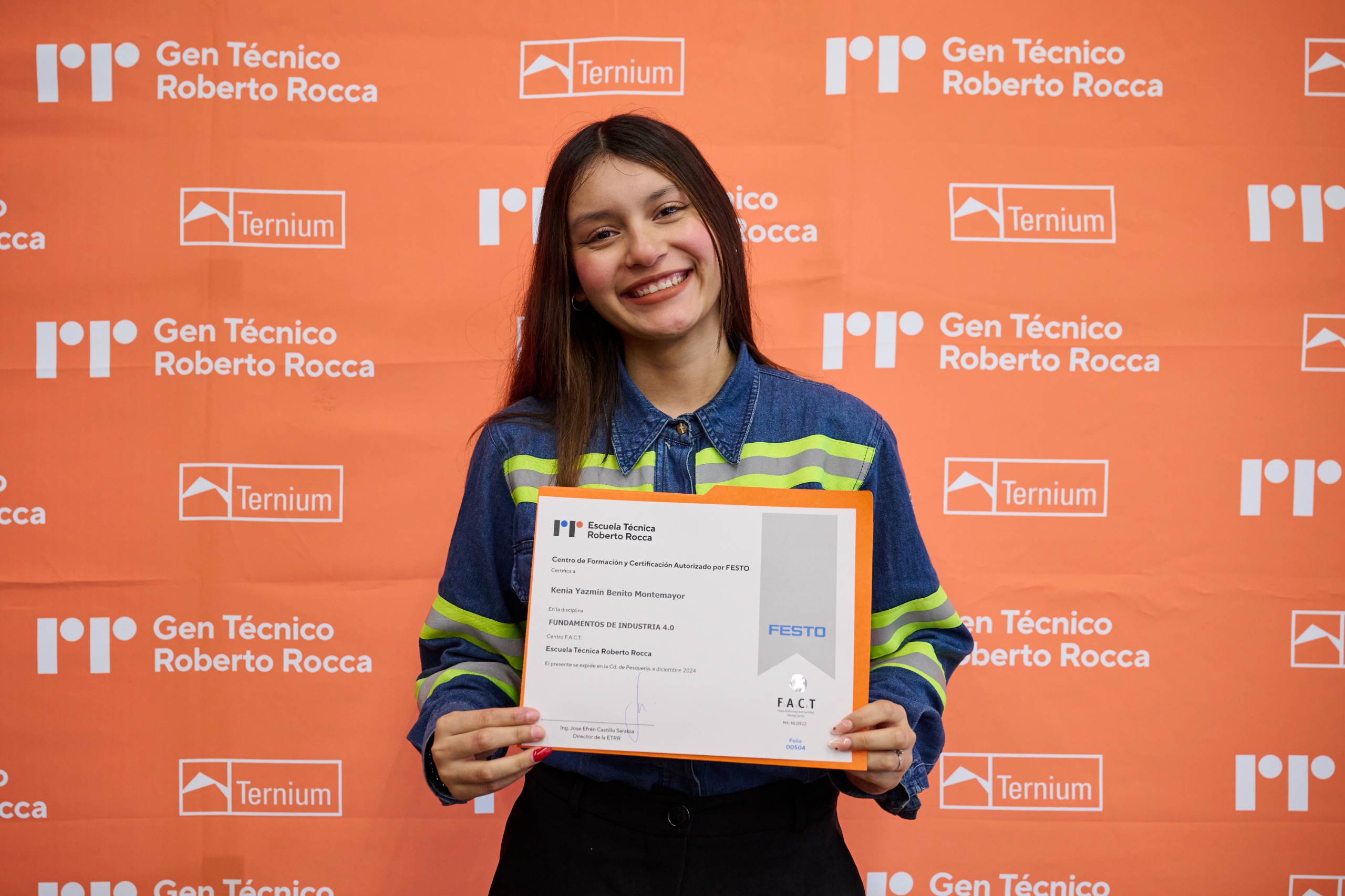
Educational actions to train girls and adolescents in Science, Technology, Engineering, and Mathematics (STEM) are fundamental for youth development and also the one of societies. In 2024, in Latin America, over 232 million people were adolescents and young adults, representing 22% of the total population. However according to the OECD [1], socioeconomic factors, gender, ethnicity, and educational level generated significant inequalities in health.
Evidence shows that being a woman also affects the transition time into the labor market [2]. Initial findings indicate that women take longer to enter the workforce compared to their male counterparts [3]. This is linked to prescribed social roles for women and childbearing, which more frequently occurs during study periods, leading to interruptions in their educational trajectories.
Developing STEM skills is crucial to foster innovation, inclusive growth, and sustainable development. These competencies are increasingly in demand in the labor market, offering young women greater opportunities for quality employment and better salaries, thus helping to reduce the gender gap in these sectors.
Despite their importance, efforts in Latin America to promote STEM education for girls and adolescents in secondary and technical schools remain insufficient. In 2020, only 2.2% of women held STEM-related jobs [4], resulting from individual, familial, school, and societal factors. UNESCO´s data identify four factors influencing STEM and/or technical-professional education choices [5]: “career guidance with a life-cycle approach; cultural aspects, gender roles and stereotypes; economic factors; and lack of teacher training” [5].
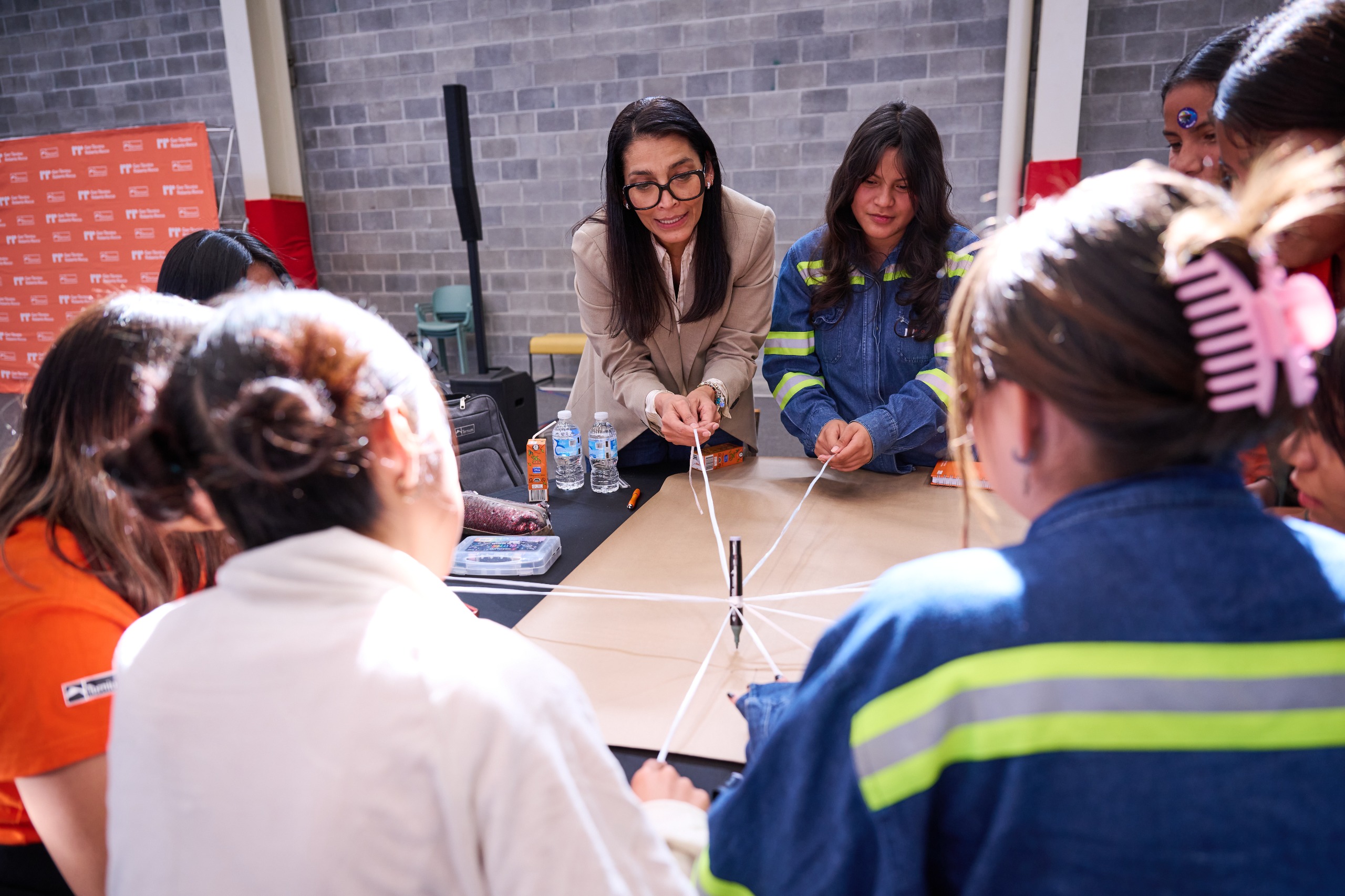
Through the Roberto Rocca Educational Programs varied actions are implemented that contribute to early vocational development in STEM, helping to reduce gender gaps and stereotypes, and fostering positive attitudes toward mathematics—ultimately preparing committed women for industry demands. To lessen school-dropout gaps due to lack of resources—which in Mexico reach nearly 27%—complementary measures such as meals, personal protective equipment, and supplies for workshops and extracurricular activities are provided to all students. Additionally, Roberto Rocca Scholarships are awarded to the highest-performing students from vulnerable contexts.
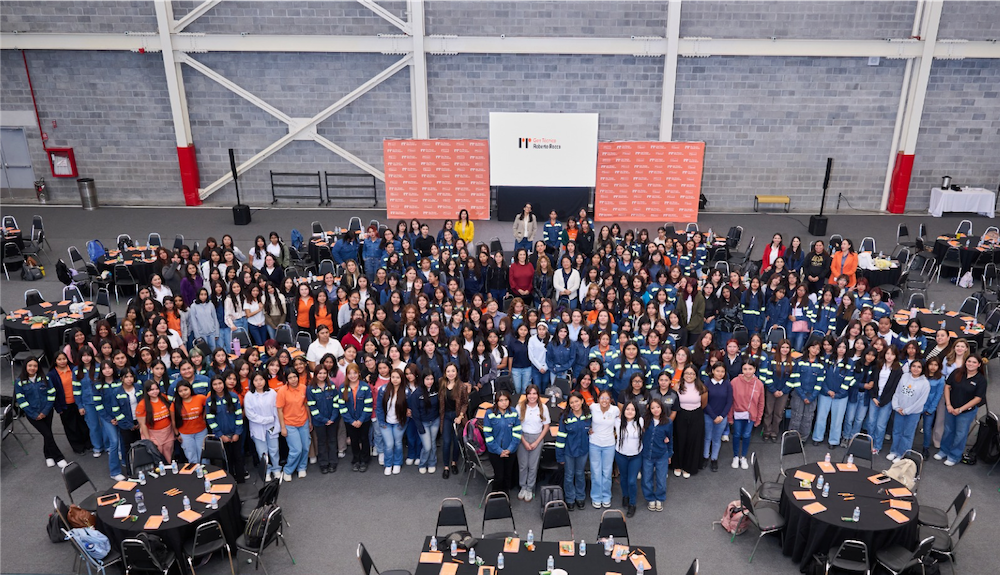
Over the years, the Roberto Rocca Technical Schools Network has developed strategies to promote STEM interest and participation among girls and young women in nearby communities. Notable initiatives include:
STEM role models: Female teachers act as inspiring figures. For instance, Ilse Colín, STEM coordinator, has promoted scientific vocations and co-designed a summer research program. Tania Guerrero, math coordinator and engineer, participated in July 2024 in a CERN intensive particle physics program in Geneva, becoming an ambassador in Mexico to attract more young women to science, especially physics, and created innovative strategies to teach math through art. Diana Camacho, science teacher at Pesquería Technical School and Roberto Rocca After School (lower secondary level), mentors social and industrial impact projects under a Project-Based Learning methodology, fostering student proposals aligned with Sustainable Development Goals and organizing Science Fairs. Finally, Kelian Alcocer, STEM workshop leader, has created biology-art and 3D printing activities and coordinated ecology and environmental care actions.
Belén Torres, who was a techaer for seven years at Campana Technical School in Argentina, now works at Educabot, an educational technology and robotics company. Seven years ago, she co-founded Roboteam, through which over 5,000 children and adolescents in Argentina have participated in inclusive and accessible robotics workshops—combating gender stereotypes and encouraging girls to consider careers in male-dominated fields. Similar initiatives are showing an increase in female participation in technical secondary education, signaling positive change toward greater inclusion.
Promoting a more inclusive education and supporting teachers’ initiatives in the Roberto Rocca Network of Schools are key steps to ensure more girls discover and commit to technology. These advances benefit young women by offering new opportunities and, likewise, enrich the technological landscape with their talent and creativity.
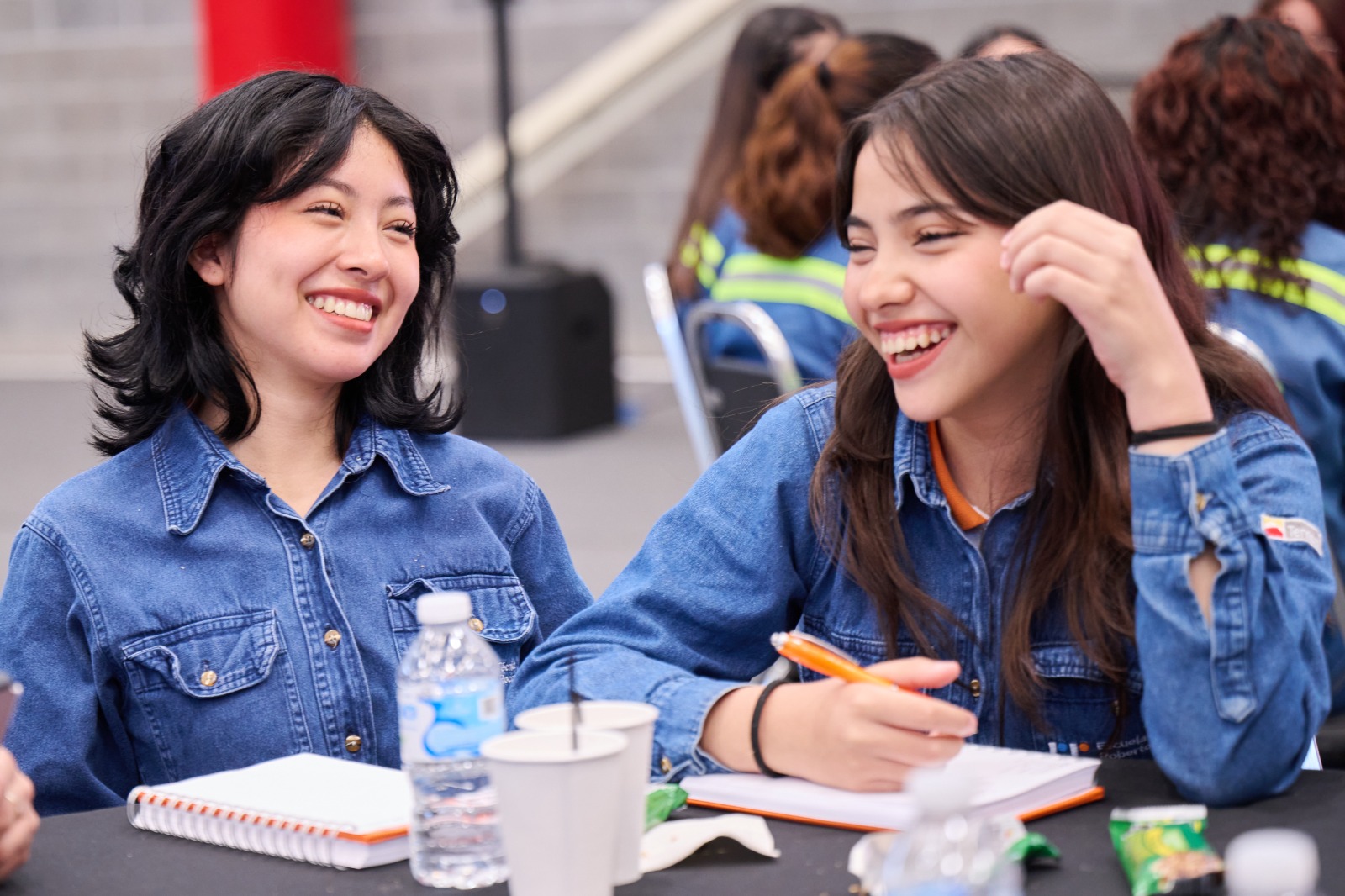
The Gender Diversity Track of the Roberto Rocca Technical Gene Program aims to “promote access and retention of more women to quality technical education and their effective transition into the workforce; increase graduation of women in industrial technical careers; and ensure their successful entry into the workforce and/or continuation in STEM higher education.” During the 2023–2024 school year, this track was first implemented in Pesquería, Nuevo León, Mexico, with CECyTE Nuevo León (49% female student body, 35% in technical-industrial careers—higher than the national average of ~30% women). Six workshops and a visit to Ternium’s industrial center were offered, allowing role models from the academia and the Industry to share real information and experiences to foster female access and retention in technical education.
Other significant actions in the Roberto Rocca Technical Schools Network include:
- Women in Science: Students participate in activities and conferences led by female researchers from universities and research centers.
- Robotics Workshops: Led and taught by students to over 1,000 primary and secondary girls in Pesquería, aiming to spark interest in STEM from an early age.
- Girls’ Committee: Promotes empowerment and well-being through social activities in the community.
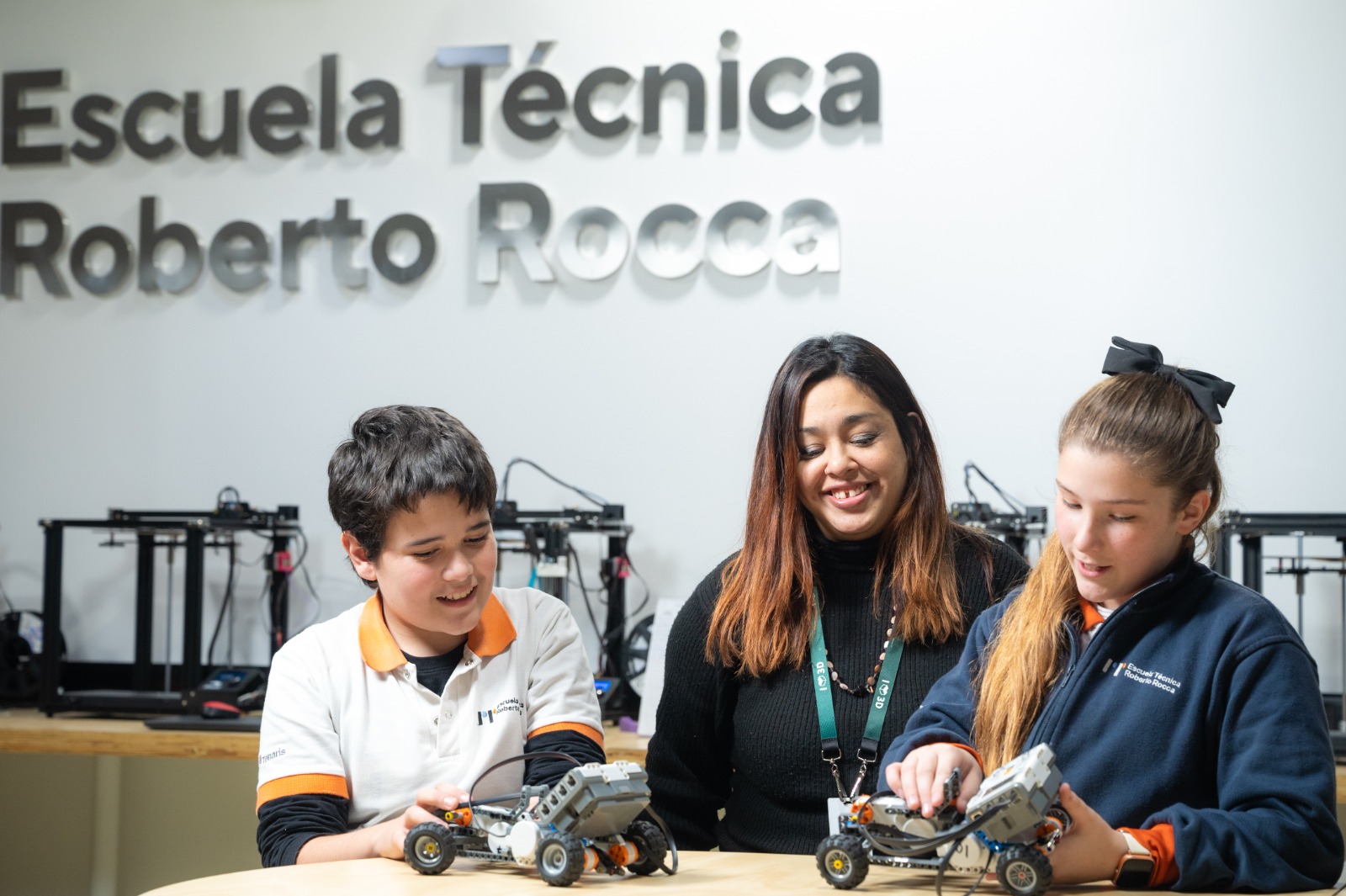
Moreover, within PBL units, gender-aware math teaching is implemented—incorporating gender perspectives in teaching, learning, and assessment—so students consider gender as a variable in academic project proposals and development, fostering inclusion.
As a core part of developing technical competencies, high-school students participating in Roberto Rocca Educational Programs undertake professional internships in industry or social service in STEM areas. This allows schools to share strengths and improvement opportunities with industry, enhancing students’ experiences within participating companies.
Roberto Rocca School´s students carry out their internships in various industrial centers (e.g., Ternium and Tenaris plants, part of the Techint Group), taking leadership roles in projects historically filled by men. Interns complete up to 1,000 hours, gaining tools and experience that increase their chances of accessing quality, better-paid jobs post-graduation.
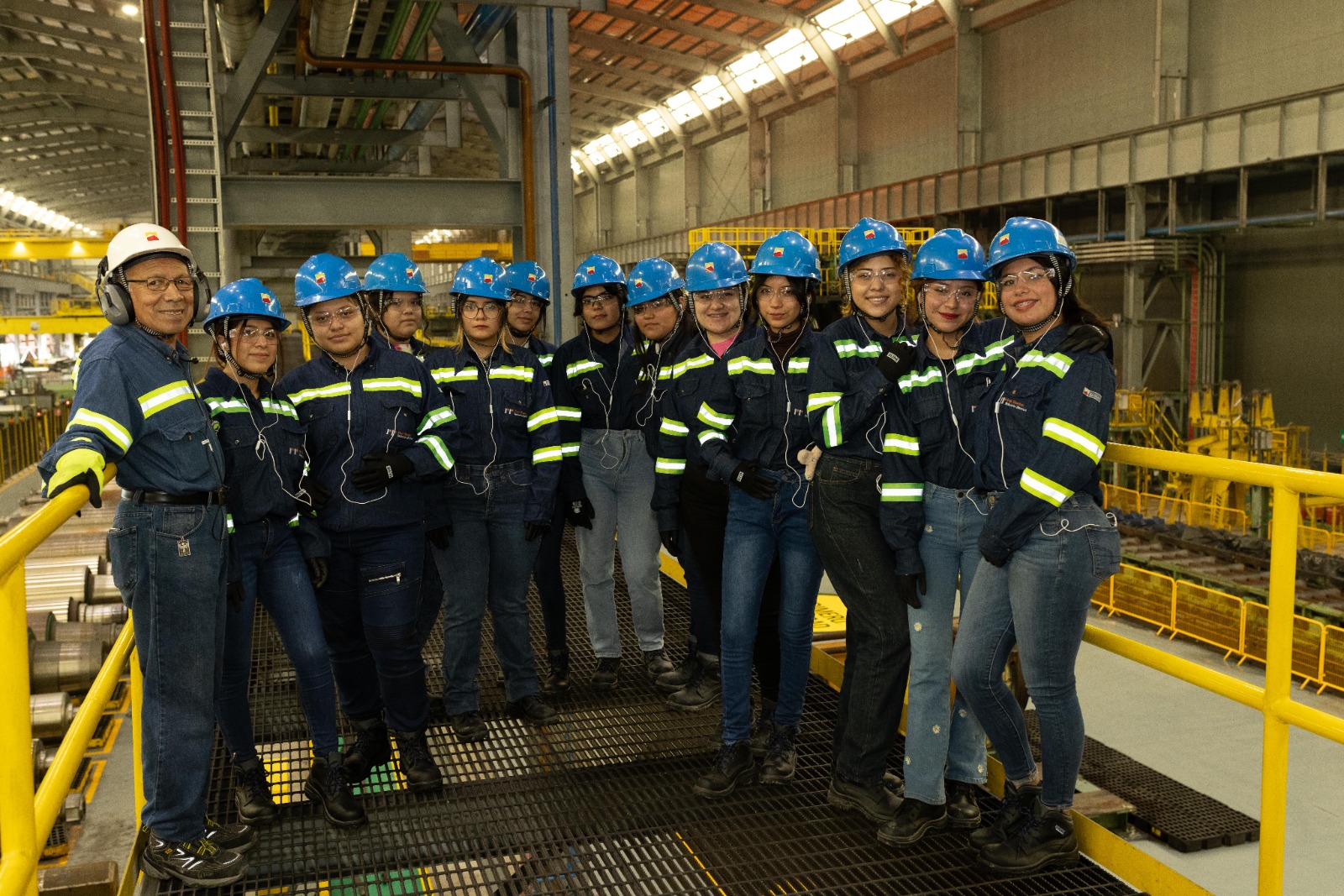
The dual‑model technical internships at Ternium Mexico began in August 2024, lasting 10 months in the final school year: students spend two days weekly in the plant on technical projects, two days on industrial safety, technical topics, and soft skills training, and one day at school strengthening the articulation of theory and practice. Among interns, 50% are women, aligned with Ternium’s inclusion policy, fostering a connection between education and work that transcends immediate employment—technical internships help build a more equal and inclusive society [1].
Women’s inclusion in STEM is essential not only for equitable representation but for enriching the field with diverse perspectives that lead to more comprehensive and effective innovations. Women have long been agents of change in science and technology, bringing unique approaches and creative solutions to complex challenges. However, to realize these contributions, it is vital to continue fostering and showcasing STEM vocations from an early age.
[1] OECD, CAF Development Bank of Latin America, & Economic Commission for Latin America and the Caribbean. (2016). Perspectivas económicas de América Latina 2017: Juventud, competencias y emprendimiento. OECD. https://www.oecdilibrary.org/docserver/leo-2017-7-es.pdf?expires=1727371989&id=id&accname=guest&checksum=619A7FFD96406E17BDAD2947AE0A2BBE
[2] Sayre, E., y Daoud, Y. (2010). Labor market regulations and unemployment duration in Palestine (ERF Working Paper Series No.c579). Giza: Economic Research Forum.
[3] Manacorda, M., Rosati, F.C., Ranzani, M., y Dachille, G. (2017). Pathways from school to work in the developing world. IZA Journal of Labor y Development, 6(1), 1-40.
[4] Vaca, T. I. (2019). Oportunidades y desafíos para la autonomía de las mujeres en el futuro escenario del trabajo. Cepal.org. https://repositorio.cepal.org/server/api/core/bitstreams/edc6e8c4-d873-4ad7-a069-1a4a260ca8c1/content
[5] Movimiento Stem+. (2023). Informe sobre la brecha de género en STEM en la formación Técnico Profesional (EFTP) en México. https://www.unicef.org/mexico/media/7826/file/Informe%20sobre%20la%20brecha%20de%20g%C3%A9nero%20en%20STEM%20en%20M%C3%A9xico.pdf
BIOS
- Pedagogue with master’s degrees in Education and Educational Entrepreneurship. Committed to quality, integral education aimed at solving social issues through dynamic, creative, and assertive proposals. With 18 years in teacher training and evaluation and development of industrial technical education programs, she is certified in Positive Discipline, Design Thinking, and PEAR Harvard’s Dimensions of Success. An active and extroverted woman, she continuously adapts, guided by social intelligence. She currently coordinates the Roberto Rocca Technical Gene Program at Ternium Mexico, impacting over 1,000 students annually.
- https://www.linkedin.com/in/alheliavila
- Email: cavilal@ternium.com.mx
- Industrial Chemist with a Master’s in Mechanical Engineering Sciences, specializing in Materials. Over 10 years in teaching and metallurgical research, CAD/CAE technologies, and 3D printing; holds patents and publications in casting processes. As Academic Vice Director of the Roberto Rocca Technical School in Mexico, she transforms education with innovative methodologies that promote deep learning and holistic student development.
- https://www.linkedin.com/in/mony-martinez
- Email: mmartihe@etrr.edu.mx
- Mentor and speaker with over seven years in technological education. Co‑founder of Roboteam, passionate about robotics, AI, and entrepreneurship, and currently works at Educabot. Her goal is to transform education and foster STEM vocations in youth, impacting through international workshops and talks.
- https://www.linkedin.com/in/anahi-belen-torres/